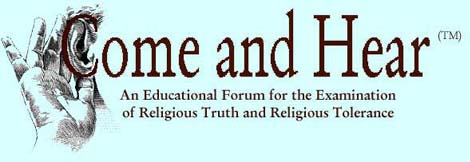The Roadmap
7. The Talmud Lives for Jews
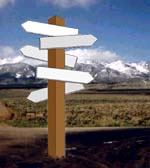
The Roadmap — Let the Rabbis tell us about the Talmud. Why is this fundamental book of Judaism unknown to most Americans?
| Navigate This Site | |
 | |
| Home | |
| Valentine | |
| Dilling | |
| Talmud | |
| The Rabbis | |
| Supplement | |
| Glossary | |
| Download | |
| Admin | |
| | |
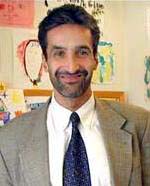
"Samuel G. Freedman is an award-winning writer and professor. A former reporter for The New York Times, he is the author of the four acclaimed books, most recently Jew vs. Jew: The Struggle for the Soul of American Jewry" (19)
"In the struggle for the soul of American Jewry, the Orthodox model has triumphed." — Samuel G. Freedman (5)
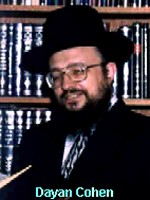
Dayan (judge) HaRav Gavriel Cohen
"The Rabbinical Court of California and the West Coast, headed by HaRav Gavriel Cohen is authorized to handle all matters of Jewish religious law, and is designated by the State of Israel to serve the western United States, Canada, Mexico and the Far East in matters of Halacha (Jewish law)." — The West Coast Rabbinical Court (21)
"… designated by the State of Israel …" How long will it be before the State of Israel gives rabbinical courts jurisdiction over non-Jews in this country? Recall the Congressional declaration concerning the Noahide Laws — see America's New Government Religion.
"The validity of decisions and decrees of the Beit Din have been upheld by the Supreme Court in Jerusalem, and are recognized by both Ashkenazi and Sephardic leaders." — The West Coast Rabbinical Court (21)
We might wonder how a California court case becomes a concern of the Israeli Supreme Court?
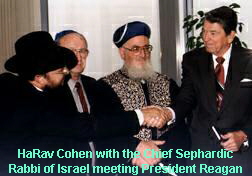
President Ronald Reagan meeting with Dayan HaRav Gavriel Cohen and the Chief Sephardic Rabbi of Israel. (21)

You can help in the battle for Truth, Justice, and the American Way! Fight the forces of censorship and suppression of the Talmud, and bring about understanding between peoples of different faiths.
Download this site to your desktop computer.
Make CDs and distribute them to friends, neighbors, ministers, and community leaders.
Email your favorite essay to your email list.
Post your favorite essay to discussion forums.
Print your favorite essays and give them to those not on the Internet.
Flyers advertising Come-and-Hear.com can be distributed throughout your community.
 Genuine Come and Hear™ CDs do not contain executable programs. When making CDs, do not include any files that end in .exe, .com, .bat, .vbs, .doc, .pif, .sit, or .scr. The person receiving the CD should use his own browser to view the files. This helps to protect him from harmful programs and viruses.
Genuine Come and Hear™ CDs do not contain executable programs. When making CDs, do not include any files that end in .exe, .com, .bat, .vbs, .doc, .pif, .sit, or .scr. The person receiving the CD should use his own browser to view the files. This helps to protect him from harmful programs and viruses.
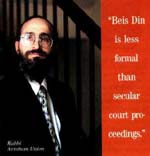
Rabbi Avraham Union, rabbinic administrator and judge for the Los Angeles Beis Din (Beth din)
"Overall, I would characterize Beis Din proceedings as much less formal than typical civil, or secular, court proceedings," he says. He also notes that compared to their secular counterparts, the rabbis who judge tend to be more actively involved in the presentation of cases. (30)
Does loss of formality involve less rigorous examination of fact? Hearsay evidence, for example, is accepted with the same validity as written documents. (26) There is also a concern that a judge who became "more actively involved in the presentation of cases" would be less impartial.
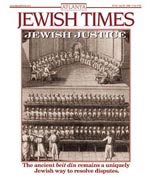
A Jewish Court might not be suitable for non-Jews, however.
MISHNAH. … where an ox belonging to an Israelite has gored an ox belonging to a Canaanite, there is no liability, whereas where an ox belonging to a Canaanite gores an ox belonging to an Israelite, whether while tam or mu'ad, the compensation is to be made in full. — Baba Kamma 37b
Citing this passage, the Jewish Encyclopedia states, "The Mishnah, bearing such facts in mind, therefore declares that if a Gentile sue an Israelite, the verdict is for the defendant; if the Israelite is the plaintiff, he obtains full damages (B.K. iv. 3)." — Jewish Encyclopedia (25)
Where a suit arises between an Israelite and a heathen, if you can justify the former according to the laws of Israel, justify him and say: 'This is our law'; so also if you can justify him by the laws of the heathens justify him and say [to the other party:] 'This is your law'; but if this can not be done, we use subterfuges to circumvent him. — Baba Kamma 113a

Rav Michael Broyde is Associate Professor of Law at Emory University School of Law. He clerked for Judge Leonard I. Garth of the United States Court of Appeals. Rabbi Broyde is a member (dayan) of the Beth Din of America, the largest Jewish Law Court in America, where he served as director during the 1997-98 academic year. (22)
Apparently, Orthodox Jews are not forbidden to officiate in Gentile courts or teach in Gentile law schools. However, Orthodox Jews are not permitted to use Gentile courts for their own disputes.
"No Jew or Jewess, wherever he may be, is allowed to go to a non-Jewish court, or to their offices or officers, without exception. If there should be any disagreement between Jews, they should turn to a Jewish Beis Din for their legal proceedings according to Jewish law …" — Alliance for Authentic Judaism (10)
Rabbi Broyde has recently lamented to the Jerusalem Post that "Orthodoxy has become like the Wild West … Might makes right, because there's no sheriff around. There's no system of justice … There is no religious court system with the ability to govern the Orthodox community … because the community is not cohesive and participation in religious life is voluntary." — Rabbi Broyde, quoted in the Jerusalem Post (23)
On October 19, 2001, Rabbi Michael J. Broyde delivered a lecture to The Orthodox Caucus on Judaism's policy on mosers, that is, Jews who brings the unlawful activities of another Jew to the attention of Gentile authorities. According to Talmud law, such "informers" can and should be killed. Rabbi Broyde's presentation included a survey of rabbinical opinions on the applicability of the law to modern day. (32)

Rabbi Yitzchok Adlerstein calls the Talmud, "the world's oldest continuously-practiced legal code … the backbone of Jewish law for the last two millennia." (20)
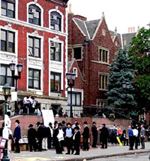
Beth Din - Brooklyn, New York
"Because the Beth Din conducts its cases in a manner consistent with the requirements of secular arbitration law, its rulings are legally binding and enforceable in the secular court system." — The Beth Din of America (9)
A surprising number of standard contracts in the US now mandate the use of alternative dispute resolution, or arbitration, to handle disputes. You may, for example, find such a provision in a standard credit card agreement. All Gentiles bound by such agreements should be wary of the firm, the arbitrators, and the standards of law that will used to decide the case.
"The Lord came from Sinai, and rose up from Seir unto them; he shined forth from Mount Paran (Deut. xxxiii, 2), indicates that the Almighty offered the Torah to the Gentile nations also, but, since they refused to accept it, He withdrew His 'shining' legal protection from them, and transferred their property rights to Israel, who observed His Law." — Jewish Encyclopedia (25)

Rabbi Baruch Lanner, an official with the Union of Orthodox Jewish Congregations of America ("Orthodox Union" or OU), was arrested and sentenced for criminal sexual conduct with female students under his care.
Speaking to a New York Times reporter in July 2002, Rabbi Lanner said, "Emphatically, emphatically, emphatically it did not happen. This is a kid that came from a troubled background. I took her in and raised the tuition money for her to attend that school, and bus money, and this is the payback I receive?" — as told by the Jewish News of Greater Phoenix (38)
Rabbi Lanner was convicted, and on October 8, 2002 was sentenced to a 7-year prison term.
"The rabbi, 52, was taken away in handcuffs Friday from the Monmouth County courtroom in Freehold, N.J., after delivering an emotional plea for mercy that invoked the Holocaust, God and his young grandchild.
'The room was so quiet you could hear the click of the handcuffs,' said an observer who was in the courtroom.
'I am not a monster,' Rabbi Lanner declared, according to published reports.
He admitted to having poor judgment but stopped short of apologizing to the two victims." — The Jewish Week (40)
When confronted with thought-provoking or controversial quotes from the Talmud, some people respond as follows:
"Jews don't pay attention to the Talmud. It's only for the ultra-Orthodox. It has no relevance to the lives of most Jews, and can hold no legitimate interest for Gentiles."
According to the experts, however, the Talmud is more central to Jewish life and to Israel than the Bible is to most Americans.
Secular Jews Turn To Talmud
The reputation of the Talmud among liberal and secular Jews, especially in the United States, has undergone a big change in the direction of a highly favorable attitude in the past quarter-century …
The Talmud has become a coffee-table book for suburban Jewish America! And perhaps a few hundred of such bourgeois purchasers may have perused a few of its difficult talismanic pages. Meanwhile, the proliferation of Judaic studies programs on American campuses disseminated well-informed overviews of the Talmud among thousands of American Jews of the younger generation.
— Norman F. Cantor (1)
This change must have been in the making for a while. See this statement from Rabbi Michael Rodkinson, who died a century ago:
The colleges for the study of the Talmud are increasing almost in every place where Israel dwells, especially in this country where millions are gathered for the funds of the two great colleges, the Hebrew Union College of Cincinnati and the Jewish Theological Seminary of America in New York, in which the chief study is the Talmud and its post-talmudical literature.
— Rabbi Michael Rodkinson (2)
New Translations Of The Talmud
The growing movement towards Talmudism is reflected by the publication of new English translations of the Talmud. Read news of the Schottenstein English translation.
These new volumes have been prepared by a team of accomplished scholars who distill the essence of the classic sources and commentators. Acclaimed by a broad spectrum of scholars and laymen, this series fills the need of those who wish to study the Talmud in the classic manner — without over simplification, extraneous material, or unnecessary turgidity.
— Mesorah Publications, Ltd (6)
Read the news of the Steinsaltz English translation:
The famous Steinsaltz Talmud of Rabbi Adin Steinsaltz is published by The Israeli Institute for Talmudic Publications - Sifrei Milta. It is the only Talmud translated to Hebrew, fully punctuated and incorporating sentence and paragraph breaks. It includes the famous Beur of Rabbi Adin Steinsaltz which serves both as an introductory commentary, and an illustrated dictionary of the Talmud.
— Avi Kehat (7)
Reform Jews Draw Closer To Talmud
In describing the difference between Reformed and Orthodox Jews, Reform Rabbi Amy Scheinerman states:
For Orthodox Jews, the Hebrew Scriptures are divinely authored and therefore every commandment contained therein must be obeyed. The Mishnah and Talmud are considered to have virtually the same status and are called Oral Torah.
— Rabbi Amy Scheinerman (3)
But Rabbi Scheinerman does not speak to another aspect of contemporary Judaism: The shift of liberal and Reform Jews towards orthodoxy.
Reform Judaism's Conservative Shift
Leaders of Most Liberal Branch To Toughen Conversion Rules
Leaders of Reform Judaism will adopt stricter guidelines for religious conversion today, embracing more traditional rites that American Judaism's mot progressive and popular branch has historically rejected.
Reform Jewish rabbis said they expect to adopt standards at their annual meeting in Monterey, Calif., that suggest converts commit to keeping a Jewish home, an effort that includes following Jewish dietary laws. Women will be asked to immerse themselves in a ritual bath — known as a mikveh — and men will be asked to undergo circumcisions.
The change is, in one respect, an extraordinary reversal for a movement that was founded in 1885 to allow Jews to blend into American life by explicitly rejecting many distinctly Jewish practices as 'entirely foreign' …
The new conversion guidelines are part of a shift in direction unveiled two years ago, when Reform rabbis revised their 'Statement of Principles' to place greater emphasis on mitzvot, the religious laws that govern Jews' daily lives.
— The Washington Post (4)
Orthodox Jews Have Triumphed
In his recent book, Jew vs. Jew — The Struggle For The Soul Of American Jewry, Columbia University Journalism Professor Samuel G. Freedman wrote about the power struggle between Orthodox and liberal Jews between 1960 to 1999. Freedman put it this way:
In the struggle for the soul of American Jewry, the Orthodox model has triumphed.
— Samuel G. Freedman (5)
Beth Dins Function World Wide
Beth Din. (Lit., 'house of law or judgment'; a gathering place of three or more learned men acting as a Jewish court of law. (Glossary of Soncino Talmud)
Further evidence of the Talmud's prominent place in modern Jewish life is the activity of traditional Talmudic courts, called "Beth Din," sometimes spelled "Bais Din" or "Beit Din." An Internet search on these terms will reveal dozens of functioning institutions that proclaim they dispense justice as proscribed by the Talmud.
Beth Din of America
The Beth Din of America has been recognized as one of the nation's pre-eminent rabbinic courts for nearly four decades. It serves the Jewish community in the United States as a forum for obtaining Jewish divorces, confirming personal status, and adjudicating commercial disputes stemming from divorce, business and community issues.
Firmly anchored in the principles of halakha (Jewish law), the Beth Din has earned a reputation for conducting its affairs with competence, integrity and fairness.
— The Beth Din of America (8)
According to the statement, the Beth Din of America has been functioning for more than forty years.
Beth Din Verdicts Enforceable
According to the Beth Din of America:
Because the Beth Din conducts its cases in a manner consistent with the requirements of secular arbitration law, its rulings are legally binding and enforceable in the secular court system.
— The Beth Din of America (9)
Jews Must Use Jewish Courts
The London Beth Din affirms that Jews must use Jewish Courts:
In Jewish Law, Jewish parties are forbidden to take their civil disputes to a secular court and are required to have those disputes adjudicated by a Beth Din. The LBD [London Beth Din] sits as an arbitral tribunal in respect of civil disputes and the parties to any such dispute are required to sign an Arbitration Agreement prior to a Hearing taking place. The effect of this is that the award given by the Beth Din has the full force of an Arbitration Award and may be enforced (with prior permission of the Beth Din) by the civil courts.
— JewishPeople.Net (14)
According to the Alliance for Authentic Judaism, Jews may not sue fellow Jews in Gentile courts, or even call the police on another Jew. The Alliance cites a number of authoritative sources, including the Shulchan Aruch, the compilation of Jewish law written by sixteenth century rabbinic scholar Joseph Caro. See "A Stern Warning." (10) Notice the use of the word moser in the last paragraph.
No Jew or Jewess, wherever he may be, is allowed to go to a non-Jewish court, or to their offices or officers, without exception. If there should be any disagreement between Jews, they should turn to a Jewish Beis Din for their legal proceedings according to Jewish law …
It is not permissible under any circumstances, to summon a fellow Jew to a non-Jewish court prior to summoning him to a Jewish Beis Din …
No Jew, even if he is a rabbi or leader, is allowed to permit other Jews to go to non-Jewish court before summoning the other party to Beis Din …
A Jew or Jewess who says that they will take a fellow Jew to the non-Jewish courts, and they were warned of their sin and didn't listen, mitzva laha'rog otam, and whoever acts first is worthy, as is the case of a rodeif (one who chasing a person to kill him). (Shulchan Aruch, Choshen Mishpat ibid.) …
A Jewish man or woman who calls the police on the other, is included in the classification of moser …
— Alliance for Authentic Judaism (10) (emphasis added)
Informers May Be Murdered
A moser is a Jew who brings the unlawful activities of another Jew to the attention of Gentile authorities. According to the Talmud, such "informers" can be thrown into a pit and not brought out, i.e., murdered. (11)
Rabbis Jonathan Rosenblatt and Gidon Rothstein of the Riverdale Jewish Center in New York explain the Jewish law pertaining to mosers (pl. mosrim):
Mosrim, to digress for a moment, were people who betrayed Jews to governments that would take their money and/or lives for no good reason. In such circumstances — a corrupt government that judged Jews differently from others and capriciously — such informants were seen as a grave danger to the community, and could be killed if necessary. Even when the rabbinic authorities in a town decided not to kill a moser, or any other kind of evildoer, — u-viarta was seen as providing warrant to expel such a person from the community. This example, while not directly applicable to the US or Israel, nonetheless shows that u-viarta as a halakhic concept is still seen as being in full force.
— Rabbis Rosenblatt and Rothstein (12) (emphasis added)
"Informing" is generally understood to be a notification to the authorities that someone has violated the law of the land. It implies that the subject of the informing, who is a Jew, is living in a Gentile nation and is violating the law. We must suspect that the "informer" is actually a whistle blower. Rabbi Rosenblatt and Rothstein tell us that the doctrine concerning murdering informers is still in force, but not directly applicable to the US.
![]()
Rabbi Rosenblatt is the rabbi of the Riverdale Jewish Center in Riverdale New York, an upscale suburb. Rabbi Rothstein is his associate. They are not "loose cannons" or members of a fringe group.
On October 19, 2001, Rabbi Michael J. Broyde (former director of Beth Din of America and a professor at Emroy University) delivered a lecture to The Orthodox Caucus on this subject that included a survey of rabbinical opinions. Not all the rabbis agreed with Rabbis Rosenblatt and Rothstein. One responds, "All rules of informing are applicable even currently." (32) The moser doctrines are discussed further in Haim Cohen's Dangerous Halakhah. (35)
The following may have some relevance here:
Misprision of felony. … Whoever, having knowledge of the actual commission of a felony cognizable by a court of the United States, conceals and does not as soon as possible make known the same to some judge or other person in civil or military authority under the United States, is guilty of the federal crime of misprision of felony. 18 U.S.C.A. § 4.
— Black's Law Dictionary s.v. "Misprision of felony," pages 902-903
Long-Standing Policy on Informers
It seems the Informer policy has a long history. It was so well-enforced, even LORD God was hesitant to inform on miscreants to enforce His own ordinances. In a discussion of Joshua 7:10-11, the Talmud relates:
GEMARA. … As it is written, The Lord said unto Joshua, Get thee up, wherefore, now, art thou fallen upon thy face? Israel hath sinned … 'Master of the Universe,' asked Joshua, 'who are the sinners?' 'Am I an informer?' replied God. 'Go and cast lots [to find out].'
— Babylonian Talmud, Tractate Sanhedrin 11a (ellipsis in original)
Soncino 1961 Edition, page 45
The Lanner Case
In light of the prohibitions on turning a Jew over to Gentile authorities, how can the Rabbi Lanner case be explained? It may seem to be an exception, but we examine the details of that case in the Appendix: The Lanner Case.
A People Apart
The Alliance for Authentic Judaism warns that:
Whoever is awarded money by a non-Jewish court, whether it be from business dealings, or alimony or child support, in an instance when it is not entitled by the laws of the Torah, such money is considered stolen ("gezel"). If we have the opportunity to help the one whose money was taken through the non-Jewish court, we should do so …
It is a mitzva to publicize the names and addresses of Jewish mosrim and their supporters, in order for Jews to know from whom to stay away. Whoever knows of a moser that hasn't repented, it is forbidden to assist him in any way until he repents.
Women who turn to a non-Jewish court to force their husbands to divorce them, or to receive money not in accordance with the halacha, such a get is invalid and the money is stolen, and it is forbidden to marry these women. If the woman remarried with this get, children born from the marriage are mamzeirim [bastards] …
Women who summon their husbands to a non-Jewish court, it is forbidden to marry them, for they are considered wicked ("reshaim") who descend to Gehenom and forfeit their share in Olam Haba, and therefore they should remain unmarried for the rest of their lives …
— Alliance for Authentic Judaism (10)
Shunning
The Alliance for Authentic Judaism states that rabbis who advise Jews to go to Gentile courts are leading the public to sin, and their names should be publicized.
No Jew, even if he is a rabbi or leader, is allowed to permit other Jews to go to non-Jewish court before summoning the other party to Beis Din, without following the procedure as described above (paragraph 2). Just as no rabbi or leader can allow the worship of avoda zora or the desecration of Shabbos, likewise permitting Jews to go to non-Jewish court is prohibited. If one did so, he is considered a "machtei es horabim" (one who causes other to sin) and is required to be excommunicated.
— Alliance for Authentic Judaism (10)
US Beth Din Designated by State of Israel
According to The West Coast Rabbinical Court - Beth Din of Beverly Hills:
The Rabbinical Court of California and the West Coast, headed by HaRav Gavriel Cohen is authorized to handle all matters of Jewish religious law, and is designated by the State of Israel to serve the western United States, Canada, Mexico and the Far East in matters of Halacha (Jewish law).
All traditional services of the Beit Din are available from competent and compassionate legal authorities. The validity of decisions and decrees of the Beit Din have been upheld by the Supreme Court in Jerusalem, and are recognized by both Ashkenazi and Sephardic leaders.
— The West Coast Rabbinical Court - Beth Din of Beverly Hills (21) (emphasis added)
Non-Jews under Beth Din Jurisdiction
According to the Los Angeles Business Journal, another rabbinical court — the Rabbinical Council of California, which, despite Israel's designation, seems to operate in the same jurisdiction as the Rabbinical Court of California — is being used by Jews and non-Jews alike.
But the Beit Din isn't just for Orthodox Jews. Driven largely by the increased appeal of arbitration, it has become a popular option for both non-Orthodox Jews and non-Jews attracted to its practical benefits.
"It's a huge time difference and much more economical," Isaacs said. "But perhaps the most unique feature is that most of the time, litigants come out feeling they were dealt with fairly." …
In secular court, hearsay or evidence admitted out of court is not admitted into testimonies, but under Jewish law, oral transactions or agreements carry as much weight in court as do those that are written, he said.
Further, Jewish law does not recognize the statute of limitations, and adjudications are kept private.
— Los Angeles Business Journal (26)
Attitude to Gentiles
We wonder if the Rabbinical Council of California tells its non-Jewish clients that under Jewish law, Jews are favored over Gentiles.
MISHNAH. … WHERE AN OX BELONGING TO AN ISRAELITE HAS GORED AN OX BELONGING TO A CANAANITE, THERE IS NO LIABILITY, (6) WHEREAS WHERE AN OX BELONGING TO A CANAANITE GORES AN OX BELONGING TO AN ISRAELITE, WHETHER WHILE TAM OR MU'AD, THE COMPENSATION IS TO BE MADE IN FULL.
— Babylonian Talmud, Tractate Baba Kamma 37b
Soncino 1961 Edition, page 211
See the Soncino Talmud glossary for the definitions of tam and mu'ad. The Talmud translator, Dr. E. W. Kirzner, expands the text with a footnote:
- As Canaanites did not recognise the laws of social justice, they did not impose any liability for damage done by cattle. They could consequently not claim to be protected by a law they neither recognised nor respected, cf. J. T. a.l. and Maim. Yad, Niz. Mam. VIII, 5. [In ancient Israel as in the modern state the legislation regulating the protection of life and property of the stranger was, as Guttmann. M. (HUCA. III 1 ff.) has shown, on the basis of reciprocity. Where such reciprocity was not recognised, the stranger could not claim to enjoy the same protection of the law as the citizen.]
— Dr. E. W. Kirzner
Citing the above Mishnah (Baba Kamma, Chapter IV, Mishnah 3), the Jewish Encyclopedia states:
The Mishnah, bearing such facts in mind, therefore declares that if a Gentile sue an Israelite, the verdict is for the defendant; if the Israelite is the plaintiff, he obtains full damages (B.K. iv. 3).
— Jewish Encyclopedia (25)
The following passage from the Gemara is often cited as an example of unequal treatment accorded Jew and Gentile by Jewish judges in civil court cases, and more generally, as an example of anti-Gentile doctrines among Jews.
GEMARA. … To [escape] murderers or robbers or customs-collectors one may confirm by a vow a statement that [e.g.] the grain is terumah or belongs to the Royal Court, though it was not terumah and though it did not belong to the Royal Court. But [why should] to customs-collectors [not] apply the statement made by Samuel that the law of the State has the force of law? R. Hanina b. Kahana said that a customs-collector who is bound by no limit [is surely not acting lawfully]. At the school of R. Jannai it was stated that we were dealing here with a customs-collector who acted on his own authority. But R. Ashi said: We suppose the customs-collector here to be a heathen publican as it was taught: 'Where a suit arises between an Israelite and a heathen, if you can justify the former according to the laws of Israel, justify him and say: 'This is our law'; so also if you can justify him by the laws of the heathens justify him and say [to the other party:] 'This is your law'; but if this can not be done, we use subterfuges to circumvent him. This is the view of R. Ishmael, but R. Akiba said that we should not attempt to circumvent him on account of the sanctification of the Name. Now according to R. Akiba the whole reason [appears to be,] because of the sanctification of the Name, but were there no infringement of the sanctification of the Name, we could circumvent him!
— Babylonian Talmud, Tractate Baba Kamma 113a
Soncino 1961 Edition, page 664
In rebuttal, it is said that this passage refers only to the obligations of a Jew to tax collectors from occupying governments, such as the Romans. In a discussion of the treatment accorded to tax collectors, it seems that R. Ashi cites a general rule. We invite the reader to study the text, here in the extract and in the context of the whole chapter and tractate (which we are delighted to make available at Come and Hear™), to determine for himself which is the best interpretation.
A further perspective in traditional Jewish laws and attitudes concerning Gentiles is contained in What About Gentiles? (33) Of particular interest is the modern study by Rabbi David Bar-Chayim, the head of the Makhon Ben Yishai Institute for Torah Research. Israel National Radio calls Rabbi Bar-Chayim "one of Israel's Leading Torah Scholars." (36) Rabbi Bar-Chayim's essay, The Jews Are Called "Man," offers a definitive statement of the doctrines concerning Gentiles, with extensive references to many Jewish Scriptures. (37)
Gentile Property Belongs to Jews
The Jewish Encyclopedia brings up another important issue: LORD God transferred the property rights of Gentiles to Jews.
The barbarian Gentiles who could not be prevailed upon to observe law and order were not to be benefited by the Jewish civil laws, framed to regulate a stable and orderly society, and based on reciprocity. The passage in Moses' farewell address: "The Lord came from Sinai, and rose up from Seir unto them; he shined forth from Mount Paran" (Deut. xxxiii. 2), indicates that the Almighty offered the Torah to the Gentile nations also, but, since they refused to accept it, He withdrew His "shining" legal protection from them, and transferred their property rights to Israel, who observed His Law. A passage of Habakkuk is quoted as confirming this claim: "God came from Teman, and the Holy One from Mount Paran … He stood, and measured the earth; he beheld, and drove asunder the nations" (Hab. iii. 3-6); the Talmud adds that He had observed how the Gentile nations steadfastly refused to obey the seven moral Noachian precepts, and hence had decided to outlaw them (B. K. 38a).
— Jewish Encyclopedia (25) (emphasis added)
Consumer Alert
Organizations such as the Anti-Defamation League of B'nai B'rith deny that any discriminatory doctrines ever existed in "normative" (i.e., mainstream) Judaism (see What About Gentiles? (33)). We have just reviewed several of the Talmud's anti-Gentile laws (above). Despite the ADL's assurances, Rabbi Yitzchok Adlerstein, professor of Jewish Law and Ethics at Loyola Law School and director of Project Next Step of the Simon Wiesenthal Center, calls the Talmud, "the world's oldest continuously-practiced legal code." (20) Note that Rabbi Adlerstein says continuously-practiced. Be aware, also, that Jewish leadership is actively promoting the highly discriminatory anti-Gentile Noahide Laws (see America's New Government Religion [34]).
A surprising number of standard contracts in the US now mandate the use of alternative dispute resolution, or arbitration, to handle disputes. You may, for example, find such a provision in a standard credit card agreement. Many courts have ruled that clauses concerning arbitration and alternative dispute resolution are binding, and that the arbitrator's decision is final. All persons bound by such agreements should be wary of the firm, the arbitrators, and the standards of law that will used to decide the case. Are the firm and arbitrators committed to the principle that Jews and Gentiles should receive equal justice? What evidence can the firm provide for that? Find out more about alternative dispute resolution at the Law Research "Arbitration & Mediation" page. (29)
Some Judges Require Alternate Dispute Resolution
The Los Angeles Business Journal quotes Rabbi Yitzchok Adlerstein:
"There are judges around who will not listen to a case unless some attempt has been made to use some kind of alternative dispute resolution," said Rabbi Yitzchok Adlerstein, a professor of Jewish law at Loyola Law School. "The Beit Din happens to be one that works particularly well."
— Los Angeles Business Journal (26)
Competing Beth Dins
The situation of competing Beth dins worries Rabbi Michael Broyde, former director of Beth Din of America and a professor at Emroy University. We met Rabbi Broyde above in discussion of the moser policies in Judaism that authorize the murder of informants.
"Orthodoxy has become like the Wild West," alleged Michael Broyde at a conference in New York sponsored by the Modern Orthodox group Edah.
"Might makes right, because there's no sheriff around. There's no system of justice."
There is no religious court system with the ability to govern the Orthodox community, claimed the lecturer at the Emory University Law School in Atlanta, because the community is not cohesive and participation in religious life is voluntary…
…Broyde's notion of a "sheriff" for the Orthodox "Wild West" is a national beit din that would restore law and order.
— The Jerusalem Post (27)
Beth Din of America To Rule on 9-11 Widows
According to an article that appeared on November 2, 2001 in the Israeli newspaper Haaretz, a representative of the Beth Din of America ("the supreme halakhic court for Orthodox Jewry in the US") was in Israel collecting rabbinical opinions on the eight cases of men missing in the World Trade Center disaster. (13)
The Beth Din of America and the Israeli rabbis would certainly have consulted the Talmud tractates on women and marriage contained in the Seder Nashim, which you will find at this website.
Talmud Courts in History
Between 1935 and 1948, Soncino published the complete Talmud in English. The dust jacket of the 1961 printing carried this endorsement from the Dayan (judge) of the Beth Din in London:
… this translation of the Talmud will open up for the English speaking readers the most varied and indispensable index to the collective wisdom of the post-Biblical Hebrew mind, and afford direct knowledge of the ordinances which have governed and continue to govern the religious institutions and social polity of the Jewish people.
— The late Rabbi Dr. A. Feldman, Dayan of the Beth Din, London.
— Soncino Talmud, dust jacket (emphasis added)
Notice the phrase Rabbi Feldman used: "… which have governed and continue to govern …"
In the article "Gentile," The Jewish Encyclopedia gives a history of the treatment of Gentiles under Talmudic law courts. Writing about the treatment of Gentiles after the destruction of the Second Temple (70 A.D.):
After the destruction of Jerusalem the condition of the Gentiles in general was somewhat improved by the establishment of Roman courts of justice; but the laws of the latter, borrowed from the Persians and modified by feudalism, never attained the high standard of Jewish jurisprudence. Even under the Roman supremacy the Jews were permitted to decide their civil and criminal cases in accordance with their own code of laws, just as in countries like Turkey, China, and Morocco extra-territorial rights are granted by treaty to the consular courts of foreign nations. In a mixed trial where the suitors were respectively Jew and Gentile, the Jew had to abide by the harsh and illogical laws of the Gentiles; and for this the Jew retaliated whenever occasion arose.
— The Jewish Encyclopedia (37)
The London Beth Din gives a history of rabbinical courts in England, from the time of William the Conqueror to the present day. (15)
Talmudic courts have also functioned in Europe. In Poland, under Boleslav the Pious in 1264, and Casimir the Great in 1334, Jews were granted the right to maintain their own courts. Under King Stephen Bathory (1575-86), Jews were also granted their own Parliament and the right to levy taxes on their co-religionists.
— (16)
Max Dimont, author of The Indestructible Jew, states:
Jews ran international Talmudic courts in the Middle Ages; in Napoleonic France, Jews also ran their own courts.
— (17)
In their Introduction to the Soncino Talmud's Tractate Baba Bathra, Rabbis Slotki and Simon state:
Like the other two 'Gates' [Baba Kamma and Bab Mezi'a], Baba Bathra shows us the Palestinian and Babylonian Rabbis in the role not of religious guides but of secular judges and administrators, regulating the purely worldly affairs of the Jewish people, and deciding their business disputes.
— Rabbi I.W. Slotki and Maurice Simon (18)
Jewish Court System in Action
How does the Jewish justice system function in a totally Jewish environment without the interference of Gentiles? For one answer, see And So a Talmud Marriage Ends: "Talmud Divorce in Israel."
Thank you for your consideration of the above,
Carol A. Valentine, Ear@Come-and-Hear.com
July 14, 2003 ( This article is on line at http://www.come-and-hear.com/editor/talives.html )
|
Navigate Carol Valentine's America Under the Talmud — Will It Work for US? | |||||
 Howdy! |
 The Roadmap |
 Censorship |
 Death Penalty |
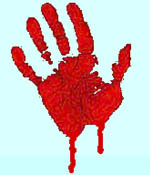 Blood Ritual |
 New America |
| Navigate This Site | |
 | |
| Home | |
| Valentine | |
| Dilling | |
| Talmud | |
| The Rabbis | |
| Supplement | |
| Glossary | |
| Download | |
| Admin | |
Endnotes:
- This and other Come and Hear™ Studies on Talmudic Judaism can be found online:
- http://www.come-and-hear.com/editor
- The Jewish Religion: Its Influence Today by Elizabeth Dilling, complete with all 300 exhibits, can be found online:
- http://www.come-and-hear.com/dilling
- Soncino Babylonian Talmud tractates, with Forewords, Introductions, Glossary, List of Abbreviations, and footnotes. Now you can study the Babylonian Talmud in full context and with the running commentary of the finest scholars of Judaism:
- Tractate Berakoth: http://www.come-and-hear.com/berakoth
- Tractate Shabbath: http://www.come-and-hear.com/shabbath
- Tractate Yebamoth: http://www.come-and-hear.com/yebamoth
- Tractate Kethuboth: http://www.come-and-hear.com/kethuboth
- Tractate Nedarim: http://www.come-and-hear.com/nedarim
- Tractate Nazir: http://www.come-and-hear.com/nazir
- Tractate Sotah: http://www.come-and-hear.com/sotah
- Tractate Gittin: http://www.come-and-hear.com/gittin
- Tractate Baba Kamma: http://www.come-and-hear.com/babakamma
- Tractate Baba Mezi'a: http://www.come-and-hear.com/babamezia
- Tractate Baba Bathra: http://www.come-and-hear.com/bababathra
- Tractate Sanhedrin: http://www.come-and-hear.com/sanhedrin
- Tractate Abodah Zarah: http://www.come-and-hear.com/zarah
- Tractate Horayoth: http://www.come-and-hear.com/horayoth
- Tractate Niddah: http://www.come-and-hear.com/niddah
- Tractate Tohoroth: http://www.come-and-hear.com/tohoroth
- Search the Talmud http://www.come-and-hear.com/tindex.html
- Download all the above resources for local study, CD, or mirror web site:
- http://www.come-and-hear.com/download
Appendix: The Lanner Case
In light of the prohibitions on turning a Jew over to Gentile authorities, how can the Rabbi Lanner case be explained? It may seem to be an exception, but the details of the case show that it is not.
At the time he was arrested, Rabbi Baruch Lanner was a prominent staff member of the Orthodox Union, serving as the director of its youth group, the National Conference of Synagogue Youth (NCSY). In the past Rabbi Lanner served as the principal of the Hillel Yeshiva High School in Deal, New Jersey.
Over the course of decades, Rabbi Lanner's students and their parents complained that he sexually abused youngsters in his care. A Beth din was convened to hear charges against him in 1989. He was found guilty of three of the six charges brought against him, but they took no action to curtail his involvement as a youth leader.
The complainants, their parents, and supporters, formed a network and over the years worked to find a way to block Rabbi Lanner's access to children. The network eventually gathered momentum within the Jewish community.
In June, 2000, the Jewish Week publicly reported complaints against Lanner. The Jewish Bulletin News of Northern California gives this perspective:
The Lanner case not only stirred a rare public airing of the issue in the Jewish community, it also provoked intense debate in the community because Lanner allegedly abused scores of teenagers during a 30-year period.
The scandal surfaced in June 2000 when the New York Jewish Week first reported the complaints against Lanner.
As public reaction swelled, the union appointed the NCSY Special Commission on the Lanner case, and in December 2000 the panel released part of a scathing 332-page report blaming O.U. leaders for ignoring reports of Lanner's abuse and urging major organizational reforms.
In at least four instances, NCSY and union officials were "put on direct and specific notice of serious sexual misconduct" by Lanner but failed to heed such "red flags," the report said.
— Jewish Bulletin News of Northern California (39)
In March 2001, a grand jury indicted Rabbi Baruch Lanner on six criminal charges. Mark Fliedner, assistant prosecutor in Monmouth County, New Jersey, spoke to the press about Lanner's prosecution.
Fliedner told The Jewish Week the investigation, conducted by the prosecutor's office and the Ocean Township, N.J., Police Department, was "lengthy and exhaustive," and originated with The Jewish Week report of last June. Two women, now adults, who were minors at the time of the alleged abuse by Lanner, came forward to the authorities, who convened a grand jury that met over a period of several weeks.
Lanner, who has refused past efforts by The Jewish Week to be interviewed, denied the allegations to a New York Times reporter last July. He was quoted as saying, "Emphatically, emphatically, emphatically it did not happen. This is a kid that came from a troubled background. I took her in and raised the tuition money for her to attend that school, and bus money, and this is the payback I receive?"
— Jewish News of Greater Phoenix (38)
Rabbi Lanner was convicted, and on October 8, 2002 was sentenced to a 7-year prison term.
The rabbi, 52, was taken away in handcuffs Friday from the Monmouth County courtroom in Freehold, N.J., after delivering an emotional plea for mercy that invoked the Holocaust, God and his young grandchild.
"The room was so quiet you could hear the click of the handcuffs," said an observer who was in the courtroom.
"I am not a monster," Rabbi Lanner declared, according to published reports.
He admitted to having poor judgment but stopped short of apologizing to the two victims …
Rabbi Lanner could have received up to 20 years, according to Monmouth County Prosecutor Peter Boser.
— The Jewish Week (40)
Did those complaining about Rabbi Lanner "inform" on him by taking him to Gentile authorities? Not quite. Rabbi Lanner was disciplined by Jews: Jews in the victims' network, Jews at the Jewish Week, and the Jewish-surnamed Monmouth Counter Prosecutor, Peter Boser. (41)
The words of apology from the members of the 1989 Beth din are moving, but their careful mix of encouragement and caution confirms the doctrine: A Jew must not report a Jew to secular authorities, except in certain complex and undefined circumstances.
Let us look to the future. We must do everything in our power to protect potential victims from abuse. This includes reporting accusations of abuse to Jewish and, at times, to secular authorities. When a potential victim of abuse faces imminent danger, there should be no doubt that the principle of lo ta'amod al dam rei'akha, "Do not stand idly by as the blood of your neighbor is shed" (Leviticus 19:6), overrides other halakhic concerns, and one should immediately report the allegations to the secular authorities. In this brief statement, it is impossible to summarize the intricate halakhot of when to report abuse to secular authorities. We hope, however, that soon one or more of us will address the public on this question.
— Public statement of apology issued by original Beth din, edited and published by TorahWeb.org (42) (emphasis added)
